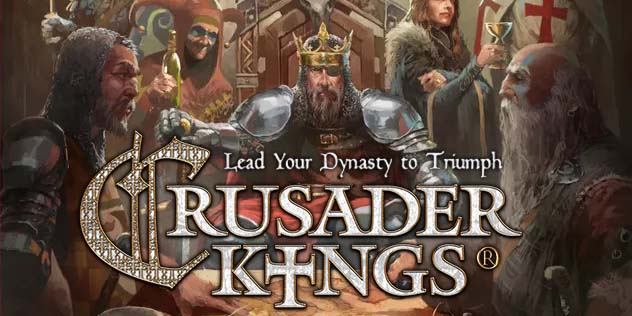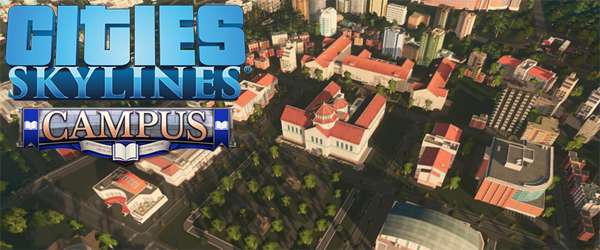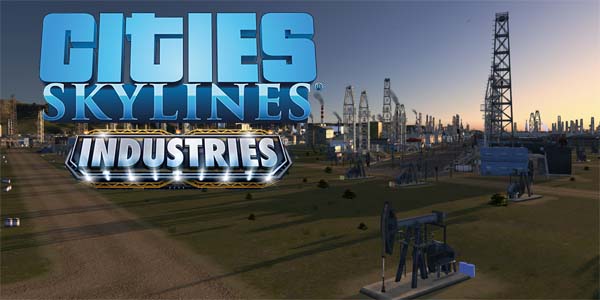
I wasn't very surprised to see a game like Sid Meier's Civilization adapted to a board game. Civ (the computer game) was always heavily inspired by board games to begin it, and so it's mechanics translated easily back into board game formats without losing much other than the broader scope of the PC game.
Paradox's Crusader Kings, on the other hand, is a totally different beast of a PC game. It is an insanely complicated, system-based blend of grand strategy game, RPG, and social sim. It simulates thousands of individual characters across hundreds of countries and duchies through dozens of generations. The possibility space is vast. As such, I would never have expected to see anyone attempt to try to boil down this deep historical simulation into a tabletop board game. Well, I guess I shouldn't say "never". In this age of every media property being adapted to board game formats, I suppose it was inevitable for someone to try.
And someone did try. In 2019, a year before the release of the Crusader Kings III PC game, Swedish board game manufacturer Fria Ligen ("Free League Publishing") released a board game version licensed by Paradox. I received the game as a gift last fall (during the height of social distancing during the COVID-19 pandemic), and so didn't get to start playing the game until well into 2021, when we finally felt a little more comfortable meeting up with friends.
As much a story-generator as a board game
For any PC players coming to the board game, there is something very important that you should know about Crusader Kings: the Board Game: it's focus is largely on the story-telling aspect of the Crusader Kings experience. If you play the Crusader Kings PC game as a hardcore strategy game, then you will probably find the board game lacking in that respect. The Crusader Kings board game is as much a story generator as it is a strategy game -- perhaps moreso.
As a story generator, my friends and I have found Crusader Kings to be very entertaining. It's certainly one of the better story-telling games that I've ever played.
Each action card will include a random event that is either disruptive to the current player,
or which benefits another player.
The way that Crusader Kings creates its little stories is through the random events of each player's action cards, and through the resolution of events by drawing trait tokens. Each turn, a player plays a pre-selected card from their hand. You perform your chosen action, and then you resolve a random event on the card. All cards, except for the "Crusade" action cards, will have a random event that is either harmful to the active player, or which provides a benefit to another player (usually the next player in the turn order).
Many actions and card events will also require that the player draw traits from a bag (similar to a die roll in most other games). Each player character starts with a pre-determined set of traits at the start of the game, and can acquire new traits through marriages, succession, or other events. All your traits go into a bag, and you draw one or more blindly from the bag to resolve a given trait check and determine the outcome of an event.
Player actions, card events, and trait draws, thus combine together to create emergent stories in both the short and long term. Sometimes these little stories can play out over the course of a few actions or turns. Other times, game-long narratives can form. [More]
34573e81-f1df-4d97-b5bc-74233cbd3e71|0|.0
Tags:Crusader Kings, Paradox Interactive, Free League Publishing, emergent narrative, grand strategy, history, medieval, Europe, crusades, war, casus beli, dynasty, succession

My blog readers know that I'm a fan of historic strategy games. Two of my favorite PC game franchises are Civilization and Total War, and I've dipped my hands into plenty of other historic strategy games ranging from the prehistoric Dawn of Man, all the way to Ultimate General: Civil War and Company of Heroes. But there's one prestigious set of historic strategy games that I've yet to get into. That is Paradox's historic strategy lineup of Crusader Kings, Europa Universalis, and Hearts of Iron. I own Crusader Kings II and Europa Universalis IV on Steam, and I've always wanted to get into them. I have a friend who plays them a lot, and the game looks really fun, but I was just never able to figure either of them out.
I tried booting up both a couple times and was just immediately overwhelmed. I tried the Crusader Kings II tutorial twice, and still didn't feel like I had a firm enough grasp on the game to feel compelled to keep playing. Part of that is because both games have myriad expansions and DLC that have just further complicated the games and repeatedly raised the bar of entry for newcomers. The only one of Paradox's tutorials that I felt gave me a reasonable grasp on the game was the tutorial for Stellaris.
When I saw previews for Crusader Kings III, I immediately put it on my watch list and committed myself to buying it day one, so that I could get in on the ground level in the hopes that it will be easier to grasp before Paradox starts releasing countless DLCs. It seems to have paid off, as I've been hooked on the game on and off since launch, and that addiction has cut into my Civ playing time, as well as delayed many of my blog projects and YouTube content. So for those of you eagerly awaiting new Civ strategies or the next installment of "How Madden Fails to Simulate Football", you can blame Paradox Interactive for the delay...
I am not the state
As someone who was never able to get into the previous game, I cannot say if Crusader Kings III is "dumbed-down" compared to its predecessor. It is, after all, still insanely complicated. But I definitely feel like it has a gentler learning curve and a much more effective tutorial compared to its predecessors. The hand-holding of the tutorial really did help me get a better understanding of how the various mechanics were working, and I've also found it much easier to navigate the revised U.I. and find the information that I'm looking for. I still feel like I have no idea what many of the U.I. panels mean, but I at least understand enough of the basics this time around to actually feel comfortable playing the game.
If you're unfamiliar, Crusader Kings is a medieval grand strategy game in which you play as the king of a small, European (or Middle Eastern or African) kingdom. You engage in diplomacy and court intrigue to increase your wealth and power, fight wars to conquer territory, and manage your growing holdings. But unlike a game like, say Civilization, you do not play as an abstraction of the state itself. Instead, you play as a line of rulers in a single family dynasty. You play as a single king (or queen) character at any given time. This king grows old, and eventually dies, at which point, you take control over you chosen heir and continue playing the game as that character. If you ever get to a point in which you have no family heir to carry on when you die, it's Game Over.
When your player character dies, you take over as that character's primary heir.
As much improved as the tutorial is, I do feel that it has one glaring weakness: it doesn't really cover succession. The tutorial basically puts you in control of a 40-year-old king in Ireland. It shows you how to press a few claims, use a casus belli to press those claims, create a title, deal with vassals, marry off a child, and then it basically just hands you the reigns and says "OK, now keep playing". And yeah sure, these are all the things that you spend most of the game doing. But I would say that arguably the most important part of the game is declaring your heir and setting up your inheritance to maximize the territory that your primary heir retains power over. I think succession is the single most important part of the game, and the tutorial doesn't cover it at all. When it finally happens, there's a tool tip that pops up to explain some stuff, but it didn't really help me all that much to understand what was happening, and a tool tip popping up after the fact certainly didn't help me to prepare for my king's inevitable death and inheritance. [More]
eb8fb312-cf3a-447e-aaf9-982c809e4e0e|0|.0
Tags:Crusader Kings, Crusader Kings 3, Paradox Interactive, Paradox Development Studio, strategy, grand strategy, RPG, history, simulation, medieval, king, Europe, crusades, war, casus belli, dynasty, inheritance

Hot off of releasing a video in which I criticized Colossal Order's design philosophy for its Cities: Skylines expansions, a new expansion was released. This expansion fulfilled my fears by being similarly narrow in scope compared to the previous expansions. Campus might even be more narrow than previous expansions. Every city will need parks and industries, so you'll have plenty of opportunity to use those expansion features in every city you build. Not every city will need a sprawling university complex, so a given city might not ever need to include any of the Campus content.
I had recently criticized the expansion design philosophy for Cities: Skylines.
Fortunately, there's more options here than a full-blown research university. Colossal Order has added several types of university areas that are more suitable to modestly-sized cities. Sure you may not need that full-blown research university, but maybe your smaller town could use a trade school or liberal arts school?
Even so, the scope here is very narrow! Colossal Order seems to have recognized this, as they are selling the expansion for a couple dollars less than previous expansions.
School is back in session, even for your industries!
Since Mass Transit, new expansions have struggled to find ways to make broader impacts on the game as a whole. They mostly stayed in their lanes. Campus follows suit by not adding anything that isn't related to education, however, those overhauls to education do have some further-reaching ripple effects.
Over-educated citizens used to refuse to take lower-level industrial jobs.
One of the problems that players have had to deal with since the initial launch of the game has been over-educated workers. Once you have schools in your city, it's only a matter of time before virtually everyone has a high level of education -- even children. This would leave all those educated citizens unwilling to take low-education, low-paying jobs in your factories and farms and would starve those industries of eligible workers. Demand for high-end commercial and office zones would skyrocket, and all your educated citizens would take those jobs. This would force those lower level industries to all but shut down once your city grows large enough.
Citizens' education level is now bounded by the level of schooling that they've attended. Prior to Campus, simply having a university in your city would provide everybody attending school (at any level) with a high level of education. Now, this has finally been fixed such that only those citizens who attend higher levels of schooling will receive the higher levels of education. This means that if a student goes to elementary school, but doesn't attend high school (either because they get a job first, or there isn't enough capacity in your high schools), then that citizen will be capped at a low level of education and will remain eligible for those low-level factory jobs.
... [More]
53aeb445-6e6e-4b24-ac8e-7fac34b2e368|0|.0
Tags:Cities: Skylines, Cities: Skylines: Campus, Colossal Order, Paradox Interactive, Steam, PC, city, university, education, college, student, varsity sports, library
Last week, just in time for the announcement (and release) of a new expansion for Cities: Skylines, I posted a video analysis on YouTube discussing what I perceive as weaknesses in the modular design philosophy behind Skylines' myriad expansion packs. The full video is available on YouTube (and embedded below), but I've also transcribed the text in blog form for those who may prefer reading over watching/listening.
The video is up on YouTube.
I want to start out by saying that I love Cities: Skylines. Skylines is -- without a doubt in my mind -- the single best city-builder since SimCity 4, which released in 2003 (over 15 years ago, as of the time of this recording). When I watched the first trailer for the game, in which the player apparently custom-builds freeway ramps and interchanges from scratch (at about 40 seconds into the trailer), I was sold on this game! After years of having to use boring, pre-fabricated stock on-ramps and interchanges, the little civil engineer withing me practically jizzed in his pants at the idea of being able to build my own highway ramps and interchanges! And there was no looking back.
Cities: Skylines gloriously succeeds where games like SimCity (2013) and Cities XL miserably failed. It picks up the mantle of the great SimCity games of yester-decade, and brings it into the 21st century with deep simulation based on agents, a sleek and modern UI, extensive customizability and moddability, and an attractive 3-D graphics engine. It's made all the more impressive by the fact that the game's developer, Colossal Order, is a small, independent studio that had something like nine people working for it when the game initially launched. And a company with all the manpower and resources of Electronic Arts only managed to produce a flop like SimCity 2013.
... [More]
cdac9d28-8482-4449-a673-ff10d4b7cc87|0|.0
Tags:Cities: Skylines, Cities: Skylines: After Dark, Cities: Skylines: Snowfall, Cities: Skylines: Natural Disasters, Cities: Skylines: Mass Transit, Cities: Skylines: Green Cities, Cities: Skylines: Parklife, Cities: Skylines: Industries, Cities: Skylines: Campus, Colossal Order, city planner, city simulation, strategy, Steam, Paradox Interactive, expansion, YouTube, Sid Meier's Civilization, Civilization V, Civilization V: Brave New World, Civilization VI, Civilization VI: Rise and Fall, Civilization VI: Gathering Storm

Wow, Colossal Order is really popping out these Cities: Skylines expansions in rapid succession! I feel like this is the third or fourth expansion in the last year alone! ... Hold on, let me check ...
| Expansion title | Original release |
 | After Dark | 24 September 2015 |
 | Snowfall | 18 February 2016 |
 | Match Day* | 9 June 2016 |
 | Natural Disasters | 29 November 2016 |
 | Mass Transit | 18 May 2017 |
 | Concerts* | 17 August 2017 |
 | Green Cities | 19 October 2017 |
 | Parklife | 24 May 2018 |
 | Industries | 23 October 2018 |
| * denotes a mini content pack, rather than full expansion. |
... So, yeah; third full expansion in the last 12 months (give or take a few days). Fourth expansion in the last 14 months if you want to count the Concerts content pack. Colossal Order seems to have been following a pattern of two full expansions and a mini content pack each year since the game released. I guess that's one way to keep your game relevant. It has certainly kept me coming back every few months.
Never as robust as I would like
The problem is that the limited development time means that the content that is provided in these expansions rarely ever feels as robust or comprehensive as it should -- at least, not to me. As such, I feel like I'm getting diminishing returns from each new expansion. The amount of content that is already in the game means that each new expansion feels like relatively smaller drop of content into an already-large bucket. Each expansion feels like it gives us less to do, and has that much of a smaller impact on the overall gameplay experience.
Adding to the problem of diminishing returns: every single expansion has had some glaring omission or weakness that bothered me, and none of the later expansions have bothered to go back in and address the weaknesses and limitations of the previous expansion(s). After Dark failed to include zoneable public beaches and didn't really make the day/night cycle feel as meaningful as it should. Snowfall failed to include season cycles to go along with After Dark's day/night cycle, and completely dropped the ball with regard to mechanics like ski resorts. Natural Disasters probably felt like the most "complete" and well-rounded expansion (not to mention the most novel one), but still suffers from its content being random, and it neglected to introduce any winter-specific disasters to go along with Snowfall.
Industries follows a long-standing trend with Skylines expansions neglecting seemingly-obvious features.
Mass Transit brought the long-overdue ferry transit option, but neglected to revise cargo harbors to make cargo ship routes more practical, and didn't have any water-based city services (like a coast guard, for example) that would allow a true island economy to function without a network of bridges for freight and emergency services. Green Cities was maybe the laziest expansion, and it focused on pollution-management, but didn't bother to actually make pollution any more relevant or challenging to begin with. Lastly, Parklife granted a lot of player expression, but failed to incorporate the legacy parks into the new modular park feature and doesn't allow the camera to zoom in close enough to get a good look at your pretty decorations.
This isn't to say that all these expansions are "bad". I've liked them all (except maybe for Snowfall and Green Cities), but none of them have really wow-ed me with their content (except maybe for Natural Disasters). And the modular nature of each expansion means that it has limited-to-no impact on the core game systems, and limited-to-no interaction with the previous expansions.
The latest expansion, Industries follows suit. It promises to re-invent the way that your cities' industry functions, but kind of does it in an almost half-assed way. Much like the expansion before it, Parklife, Industries doesn't really incorporate the old legacy industry zones into the new industry mechanics. The new "Industry Area" paintbrush is virtually the same mechanic as the Park Area paintbrush from the last expansion. It isn't a replacement for the original industrial district specialization, so if feels like it's pretty much duplicating that content rather than re-inventing it.
You paint an area as an "Industrial Park", just like the parks in Parklife.
... [More]
e7bfb680-e9c4-4e53-a202-52f87d32d445|3|3.7
Tags:Cities: Skylines, Cities: Skylines: Industries, Colossal Order, Paradox Interactive, city, city planner, city simulation, Cities: Skylines: Parklife, Cities: Skylines: After Dark, industry, pollution, natural resources, resources, production chain, district, farm, timber, lumber, ore, mining, oil, drilling, leisure, commerce
|

| 12 | | | | | | | 60 | | 11 | | | | | | | 55 | | 10 | | | | | | | 50 | | 09 | | | | | | | 45 | | 08 | | | | | | | 40 | | 07 | | | | | | | 35 | | 06 | | | | | | | 30 | | 05 | | | | | | | 25 | | 04 | | | | | | | 20 | | 03 | | | | | | | 15 | | 02 | | | | | | | 10 | | 01 | | | | | | | 05 |
|